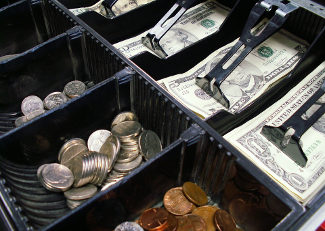Europe’s Economy Threatened by What Nation?
When gold shot up $13.00 for a $1,075 close on Monday, a bewildered media offered the antics of the usual suspects as a possible explanation: “Mideast tension,” “plunging global stocks,” or as CNN unsubtly puts it, “[G]old rises on global fears.”
Well, as the carnival barker used to say, “Ladies and gentlemen, you ain’t seen nothin’ yet!” And be advised if you’ve been looking in places like China, Saudi Arabia, Greece or Brazil for a crack in the global economy’s armor – well, those are all good guesses. But this time the trouble’s coming from the last place many of us would suspect: London.
That’s right – London! According to a January 3 article in the Washington Post, if backers of an upcoming referendum this month get their way, the Brits may soon bid “Cheerio!” to the European Union (EU).
Once viewed as a foundational member, Britain now appears to be the most disenchanted of the twenty-eight-nation union. A huge influx of refugees and accelerated terrorist attacks last year combined to fuel Brits’ concerns. According to the Post, “Under the E.U.’s free-movement principle, Britain can’t stop [the refugees], prompting ‘out’ advocates to argue that the country has lost control of its borders and can only get it back by ditching the E.U.”
Prime Minister David Cameron says he’ll strive to maintain Britain’s membership “with all [his] heart and soul,” but at the same time insists he’ll push for an EU-UK rapprochement “only if he can extract meaningful concessions that will give the E.U. less influence over British affairs.”
Given Britain has steadfastly refused to adopt the euro since the EU’s beginnings, it’s clear Cameron will hold firm to his “meaningful concessions,” one of which is a formal statement from the EU that the euro is not its only currency. If he’s successful it may well mean the beginning of the end for the euro, for what cohesive political entity has two different monetary systems? (Answer: Cuba. Enough said?)
With heightened fears of terrorism added to discord over defaulted debt obligations, spiced with centuries-old cultural and political antagonisms, the few threads holding the EU together are starting to snap. In our time, we may well get to witness the politics behind how a major fiat currency debases into antiquity. If countries that are major players make it difficult to honor a currency, can it still remain a currency? And who would have thought the key blow against the euro would come from sound and conservative Britain?
Let’s face facts; can you picture having the same problem with physical gold? Neither can I. According to the World Gold Council, gold was first used as a currency in 550 BC. Even a Ph.D. in world history couldn’t name all the countries and currencies that have come and gone since then.
Every time I see a news story that underlines the fragility of fiat currencies I double down on gold. It’s the one currency that will remain a currency no matter what happens to a weakening EU, a volatile China and even an increasingly financially unsound U.S. If events overtake us, but you’ve accumulated enough gold, you’ll be one of the few who finds yourself in a truly safe haven.


Leave a Reply